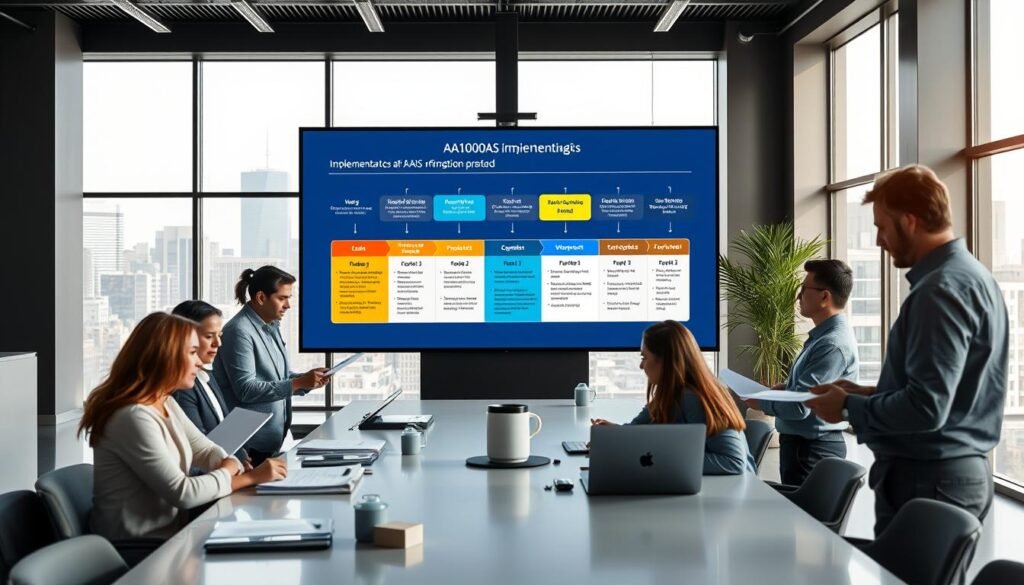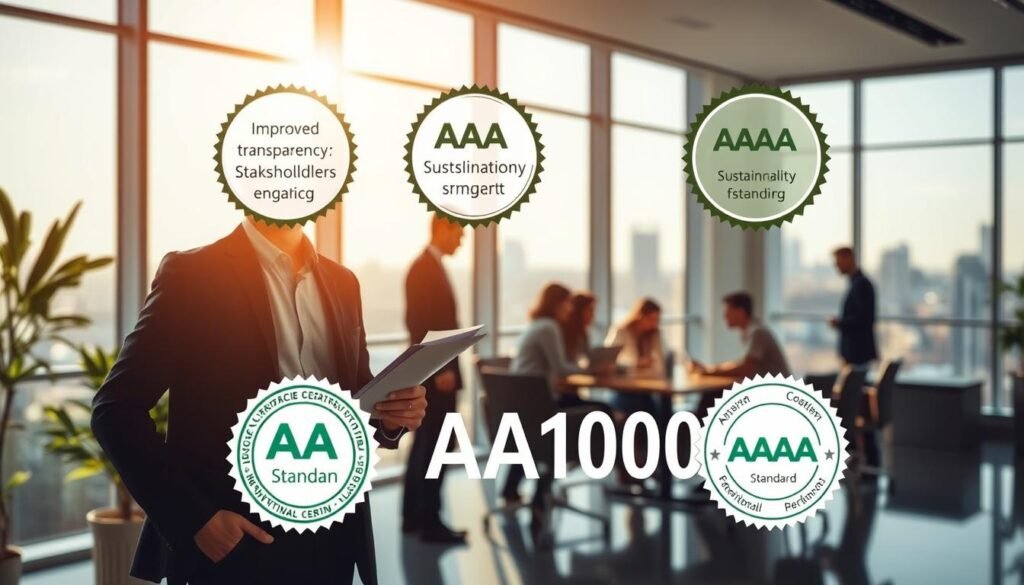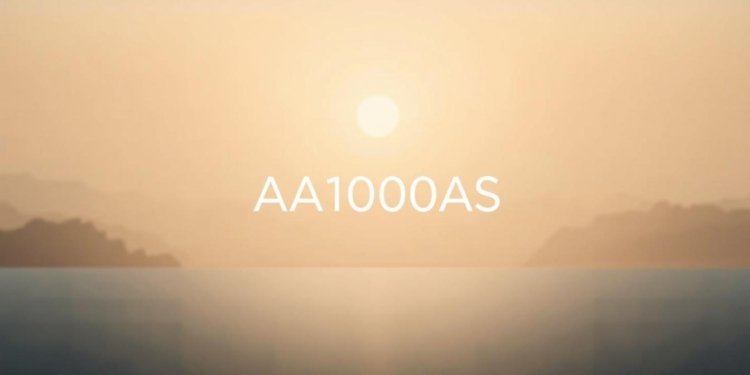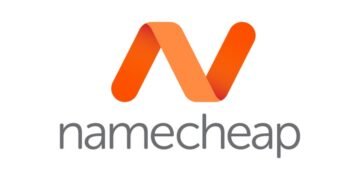Is your company’s sustainability report truly building trust, or is it just another document collecting dust? In today’s world, where transparency is non-negotiable, stakeholders demand more than promises—they want proof.
This is where robust sustainability assurance comes into play. The AA1000 Assurance Standard (AA1000AS) provides a powerful framework. Developed by AccountAbility in 2003, it helps organizations demonstrate real accountability.
The current version, AA1000AS v3, is used globally by professionals. It focuses on stakeholder inclusivity, materiality, and responsiveness. This approach builds credibility and trust in your disclosures.
This guide will show you how to implement this standard effectively. Learn to enhance your reporting accuracy and strengthen stakeholder confidence.
Key Takeaways
- The AA1000AS is a globally recognized framework for sustainability assurance.
- It emphasizes stakeholder engagement, materiality, and ethical responsiveness.
- Organizations of any size or sector can use this flexible standard.
- Proper implementation enhances credibility and trust in sustainability reports.
- It provides a forward-looking approach to managing sustainability performance.
- AccountAbility, the creator, is an award-winning global consulting firm.
- Effective use leads to better risk management and improved reporting accuracy.
Understanding the AA1000AS Framework
As environmental and social concerns take center stage, businesses need robust frameworks to demonstrate genuine commitment. The AA1000AS provides this foundation for comprehensive sustainability verification.
What is the AA1000 Assurance Standard?
The AA1000 Assurance Standard represents a globally recognized framework for sustainability assurance. It focuses specifically on non-financial information and stakeholder engagement.
This standard offers a business-centric approach to sustainability performance. It helps organizations validate their environmental and social claims effectively.
The framework anchors its methodology in three core accountability principles. These guide companies toward meaningful sustainability verification.
Core Principles of AA1000AS v3
The current version, AA1000AS v3, operates on three fundamental principles. Inclusivity ensures active stakeholder engagement throughout the process.
Materiality focuses attention on the most relevant sustainability issues. This principle helps organizations prioritize what truly matters to their stakeholders.
Responsiveness addresses stakeholder concerns through appropriate actions. Companies must demonstrate how they’re acting on feedback and data.
These principles work together to create holistic sustainability assurance. They move beyond simple data verification to comprehensive performance assessment.
The Evolution of Sustainability Assurance Standards
Sustainability assurance has evolved from voluntary initiatives to mandatory requirements. The AA1000AS pioneered this field since its introduction in 2003.
Early standards often replicated financial audit compliance approaches. AA1000AS v3 represents a “next generation” assurance standard with stakeholder-centric focus.
The framework differs from traditional financial assurance methods. It prioritizes holistic sustainability performance over mere data comparability.
AccountAbility is developing a Bridging Document for Q2 2024. This will align AA1000AS v3 assurance levels with accounting domain standards.
The standard offers interoperability with other frameworks. Licensed assurance providers can incorporate additional systems if they enhance accountability principles.
AA1000AS v3 requires compliance with laws, regulations, and ethical codes. This ensures high standards of independence and professional conduct.
The framework helps shape future company value through pre-financial topics. These issues are critical to stakeholders and external ratings.
AA1000AS v3 provides a forward-looking approach to sustainability challenges. It helps organizations navigate modern environmental and social demands effectively.
Implementing AA1000AS in Your Organization
Effective sustainability assurance begins with a clear roadmap that guides your organization through each critical step. This systematic approach transforms your sustainability efforts into verifiable results that stakeholders can trust.
The implementation process follows a structured methodology that ensures comprehensive coverage. Each phase builds upon the previous one to create a robust assurance framework.

Step 1: Preparing for AA1000AS Assurance
Preparation forms the foundation of successful sustainability assurance. Begin by thoroughly understanding the standard’s requirements and expectations.
Secure leadership commitment to ensure organizational support throughout the process. Allocate appropriate resources including budget, personnel, and time for the assurance journey.
This initial phase sets the stage for effective implementation. Proper preparation prevents challenges later in the process.
Step 2: Conducting Materiality Assessment
Materiality assessment identifies the most relevant sustainability issues for your organization. This process prioritizes what truly matters to both your business and stakeholders.
Focus on issues that have significant impact on your organization’s performance. The assessment helps direct resources toward the most important sustainability topics.
This step ensures your assurance efforts address genuinely material concerns. It creates focus and efficiency in your sustainability reporting.
Step 3: Stakeholder Engagement Process
Stakeholder engagement embodies the inclusivity principle of this assurance standard. Engage diverse groups including customers, employees, communities, and investors.
Gather input through surveys, interviews, and consultation sessions. This process builds trust and ensures your reporting addresses real concerns.
Effective engagement provides valuable insights for improvement. It demonstrates your commitment to transparent sustainability practices.
Step 4: Data Collection and Verification
Data collection forms the evidence base for your sustainability claims. Develop robust methods for gathering accurate environmental and social information.
Verification processes ensure data reliability and consistency. Use established protocols for data management and quality control.
This step provides the factual foundation for your assurance outcomes. Accurate data supports credible sustainability disclosures.
AccountAbility’s e-licensing platform supports quality management during implementation. The platform helps assurance providers maintain consistent standards.
Guidance documents are available in multiple languages including English, Spanish, and Chinese. These resources assist with specific areas like greenhouse gas emissions assurance.
Compliance with the Code of Practice ensures ethical conduct and independence. This requirement maintains the integrity of the assurance process.
The framework’s flexibility allows integration with other assurance systems when they enhance accountability. This approach supports comprehensive sustainability performance assessment.
Proper implementation leads to improved risk management and stakeholder confidence. It transforms sustainability reporting from obligation to strategic advantage.
Benefits of AA1000AS Certification
Organizations that achieve this certification gain significant advantages beyond basic compliance. The framework delivers tangible value across multiple business areas.
These benefits transform sustainability from obligation to strategic advantage. They create lasting positive impact on organizational performance.

Enhanced Credibility and Stakeholder Trust
Certification demonstrates genuine commitment to transparent practices. It shows stakeholders you take accountability seriously.
This builds trust with investors, customers, and communities. They see verified proof of your sustainability claims.
The process ensures ethical conduct through strict adherence to principles. This further strengthens your organizational credibility.
Improved Risk Management and Decision-Making
The framework’s forward-looking approach helps identify potential risks early. Organizations can address issues before they become problems.
Better data leads to smarter business decisions. Management gains clearer insight into sustainability performance.
This proactive stance reduces operational vulnerabilities. It creates more resilient business models.
Global Recognition and Compliance Advantages
This assurance standard enjoys worldwide acceptance among professionals. It aligns with emerging mandatory disclosure requirements.
Certified organizations meet international framework expectations. This simplifies compliance across different regions.
The recognition enhances standing with regulators and rating agencies. It demonstrates leadership in sustainability practices.
Strengthened Sustainability Reporting Accuracy
Certification ensures data collection follows rigorous verification processes. Information quality meets highest reliability standards.
Stakeholders gain confidence in environmental and social disclosures. They trust the accuracy of reported performance metrics.
This reliability supports better ESG outcomes and continuous improvement. It transforms reporting into strategic communication.
AA1000AS certification provides comprehensive foundation for sustainable growth. It reduces risk while enhancing market reputation.
Organizations gain competitive differentiation through demonstrated leadership. The investment returns value across all business areas.
Conclusion
Adopting the AA1000AS v3 is a strategic move for any organization aiming to lead in sustainability. It embeds stakeholder inclusivity, materiality, and ethical practices into core operations.
This framework boosts credibility and trust through rigorous data verification and engagement. It goes beyond compliance to drive real impact.
AccountAbility supports this journey with resources and ongoing updates. Embrace AA1000AS to future-proof your sustainability reporting and demonstrate true accountability.
FAQ
What is the AA1000 Assurance Standard?
The AA1000 Assurance Standard is a globally recognized framework for sustainability assurance. It provides a method for verifying the credibility and quality of an organization’s sustainability performance and reporting. This standard helps ensure that disclosures are reliable, relevant, and transparent.
What are the core principles of AA1000AS v3?
The core principles of AA1000AS v3 are inclusivity, materiality, and responsiveness. Inclusivity means engaging stakeholders in a meaningful way. Materiality focuses on identifying issues that truly matter. Responsiveness requires organizations to address stakeholder concerns and adapt their strategies accordingly.
How does AA1000AS improve stakeholder trust?
AA1000AS enhances stakeholder trust by providing independent verification of sustainability claims. This assurance process confirms that an organization’s reported data is accurate and its commitments are genuine. As a result, stakeholders gain confidence in the company’s sustainability efforts.
What steps are involved in preparing for AA1000AS assurance?
Preparing for AA1000AS assurance involves several key steps. First, establish a clear commitment to sustainability from leadership. Next, gather and organize relevant data and documentation. Then, conduct internal reviews to ensure compliance with the standard’s principles before engaging an external assurance provider.
Why is materiality assessment important in AA1000AS?
Materiality assessment is crucial because it identifies the sustainability issues most significant to both the organization and its stakeholders. This process ensures that reporting focuses on topics with real impact, improving the relevance and usefulness of disclosed information for decision-making.
How does AA1000AS benefit risk management?
AA1000AS strengthens risk management by promoting a thorough understanding of sustainability challenges. Through structured stakeholder engagement and materiality assessment, organizations can anticipate potential issues, address vulnerabilities, and make more informed strategic choices.
What advantages does AA1000AS offer for global compliance?
AA1000AS provides global compliance advantages by aligning with international sustainability frameworks and regulations. Its widespread recognition helps organizations meet various legal and voluntary requirements across different markets, enhancing their reputation and facilitating smoother operations worldwide.





